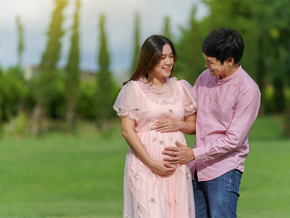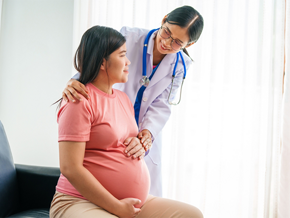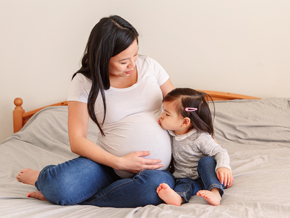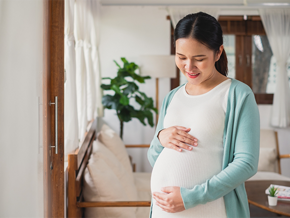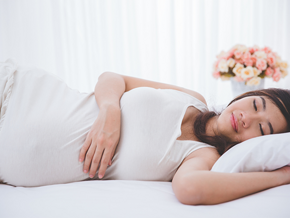
When you’re pregnant, you’re bound to come across the term "babymoon." It refers to a fun, relaxing getaway for couples before the baby arrives. Some might think it’s a bit of a splurge, given the financial pressures of pregnancy and raising a child.
However, the benefits of a babymoon don't end when the vacation does. After returning from your babymoon destination, that time together can leave a lasting impact.
A babymoon isn’t about where you go, really. It’s about helping you and your partner feel good physically and emotionally. That’s what makes the whole experience totally worth it.
How Your Relationship Benefits From a Babymoon
Pregnancy is an exciting time, but it also comes with much stress. With all the changes happening in your body, worries about labor and delivery, and thinking about the baby’s health, you naturally feel overwhelmed. And when stress builds, research shows it affects how you and your partner relate to each other, particularly during transitions like pregnancy.
A babymoon offers invaluable time for first-timers and parents who rarely get a moment to themselves. Here's how it can strengthen your connection before the baby arrives.
Deeper intimacy

A babymoon gives you and your partner a chance to tend to your mental and emotional health.
The Gottman Institute found that nearly two-thirds of couples say their relationship takes a hit in the first three years after having a baby. But the couples who adjusted well didn’t just “get through” it. They leaned on a strong friendship, stayed attuned to each other’s feelings, and faced the newborn stage as a united front.
That’s why finding ways to release stress and restore intimacy before the baby arrives can protect your relationship. The Gottman Institute calls this building a sense of “we-ness”— the feeling that you’re in it together. To maintain that feeling, you need to carve out intentional time (hint: babymoon) to be present with each other again.
Sure, you can talk about baby names or what else to pack for the hospital bag during the babymoon. But use the time to get honest about how you feel, what you’re worried about, and what kind of parents you want to be together. This is true even if this isn't your first baby; after all, you can be different parents than you were the first time.
Healthier, calmer pregnancy
Travel helps you break from routine, and that shift in the environment can make you more mindful, rested, and present. A babymoon filled with quiet meals, deep sleep, no errands, and no pressure provides a reset every expecting parent deserves.
Even short breaks have benefits. Allowing yourself to slow down can interrupt the stress cycle and lower cortisol levels, which research links to better sleep and improved mood. In short, taking care of yourself during pregnancy isn’t just a treat but part of giving your baby the healthiest start possible.
Smoother parenting
One often-overlooked benefit of taking a babymoon? It sets the stage for better teamwork once the baby arrives.
A study in the Journal of Marriage and Family found that when the relationship between parents is strong, it creates a ripple effect across the whole family. Couples who feel emotionally connected can better make decisions, share responsibilities, and support each other through the inevitable ups and downs.
On the flip side, when you don’t nurture emotional intimacy, stress has more room to creep in. Over time, that can strain your relationship and how you and your partner show up for your child.
A babymoon might seem simple, but the clarity and closeness it can bring go a long way in setting up a healthier family dynamic.
Babymoon Safety Tips
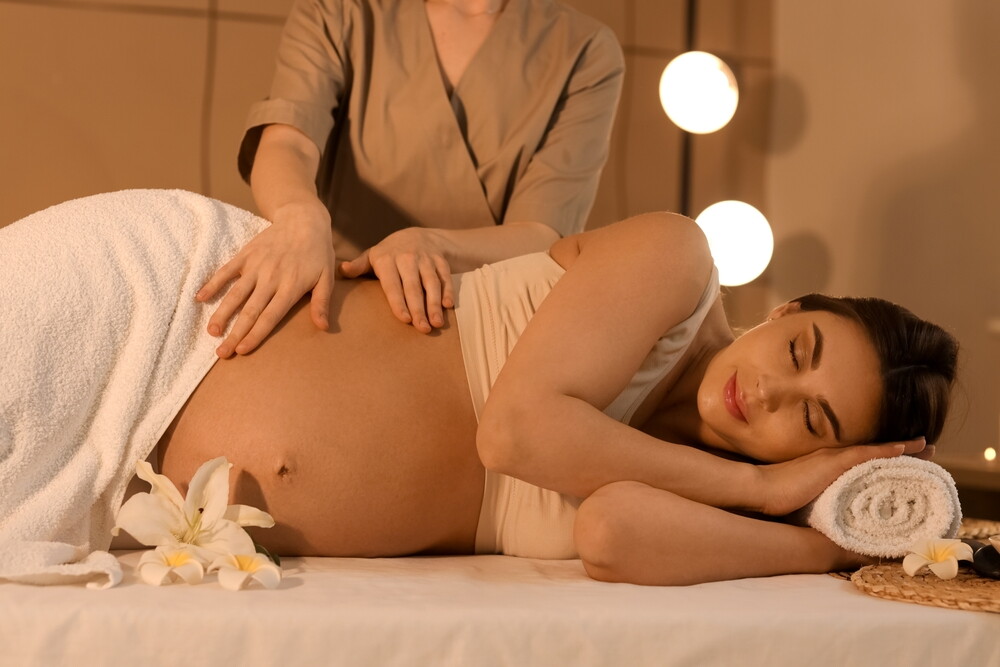
Consult your doctor about your babymoon activities like prenatal massages and outdoor adventures.
Is it safe to travel while pregnant? Yes, it is but you must remember certain precautions. Here's a quick checklist to help you plan a safe and smooth trip:
1. Secure your doctor's clearance.
It doesn't matter if you don't have a high-risk pregnancy. Always check with your ob-gyn before traveling, especially long-haul trips by car, plane or train.
2. Get your timing right.
The second trimester (weeks 14–28) is usually the sweet spot. Morning sickness has eased, energy levels are higher, and travel is generally safer.
3. Listen to what your body is telling you.
After a long day of traveling, you might feel cramping, tiredness or notice that your baby isn't moving around much. These are signs that you should rest, hydrate, and grab a quick snack. You should feel your baby start to move, and the cramps ease up
If you still feel off after resting, check in with your ob-gyn. Other pregnancy symptoms that require medical attention include contractions or constant pelvic pressure or change in vaginal discharge.
4. Travel safely.
On a long flight or a road trip, remember to get up and stretch your legs every couple of hours. It helps with circulation since pregnancy puts you at risk of forming blood clots in the legs that can travel to the lungs.
A lot of moms online suggest fitting in some daily naps, especially when you're in your third trimester, to give your body a little break while you travel. Stay hydrated, and don’t forget to pack snacks!
5. Remember your medications and prenatal care.
Bring your prenatal vitamins, doctor-approved meds, and a copy of your medical records. Don't skip your prenatal schedule, but you can make travel plans around it.
6. Check for any health risks in your target destination.
Avoid places with health warnings (e.g., Zika virus areas). Be mindful of food safety and drinking water, especially in unfamiliar areas, to avoid the risk of foodborne illness.
7. Put an emergency plan in place.
Book places with easy access to clinics or hospitals or know where is the nearest one. Save emergency numbers on your phone before the trip. Make sure your travel insurance covers pregnancy-related issues, especially if you're traveling abroad
With these in place, you can focus less on "what ifs" and more on enjoying quality time bonding with your partner.
Bring the Babymoon Mindset Home
The babymoon doesn't end when the bags are unpacked. That same intention of connection and slowing down? You can bring that into your everyday life, even after the baby arrives.
Try these small ways to keep the babymoon spirit alive at home:
- Weekly "no baby talk" date nights
- Evening walks, just the two of you (or with the baby in a stroller)
- Tech-free breakfast or coffee moments
- Regular check-ins: "How are you doing today?"
These little rituals can be your anchor during the wild, beautiful, sleep-deprived months of new parenthood.
At the end of the day, a babymoon isn't about where you go or how luxurious the trip is. You go on one for the bond you're nurturing, the conversations you'll remember, and the calm it brings before the beautiful chaos begins. You deserve that moment, and your future selves will thank you for it.
References
Kumar, Shaina A., Rebecca L. Brock, and David DiLillo. “Partner Support and Connection Protect Couples During Pregnancy: A Daily Diary Investigation.” Journal of Marriage and Family 84, no. 2 (September 1, 2021): 494–514. https://doi.org/10.1111/jomf.12798.
Phifer, Andrew. “How to Safely Celebrate Your Babymoon.” Baylor College of Medicine Blog Network, December 6, 2022. https://blogs.bcm.edu/2022/12/06/how-to-safely-celebrate-your-babymoon/.
Society of Behavioral Medicine. “Stress and Pregnancy, Coping With Stress During Pregnancy, How to Treat Stress Naturally During Pregnancy, Managing Stress and Anxiety,” n.d. https://www.sbm.org/healthy-living/how-to-manage-stress-naturally-during-pregnancy.
Vespestad, May-Kristin. “Babymoon Tourism: Co-Creating Well-Being for Traveling Mothers.” Journal of Travel Research 62, no. 6 (October 3, 2022): 1277–89. https://doi.org/10.1177/00472875221125669.



















